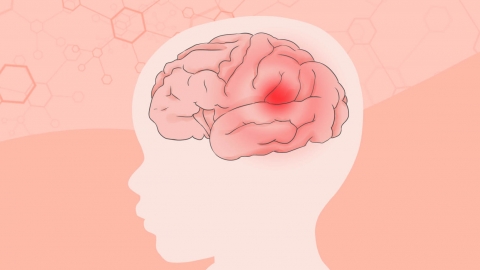What causes bilateral cerebral lacunar infarction?
Generally, bilateral cerebral lacunar infarction may be caused by factors such as aging, unhealthy lifestyle habits, hypertension, diabetes, and hyperlipidemia. If discomfort symptoms occur, it is recommended to seek timely treatment at a reputable hospital. Detailed explanations are as follows:
1. Aging
With increasing age, blood vessels gradually age, vascular wall elasticity decreases, the lumen tends to narrow, and blood flow slows down, thereby increasing the risk of bilateral cerebral lacunar infarction. Mild physical activities such as walking or tai chi can be performed regularly in daily life to promote blood circulation.
2. Unhealthy Lifestyle Habits
Long-term smoking, excessive alcohol consumption, and prolonged sitting can damage vascular endothelial cells, impair blood circulation, and trigger bilateral cerebral lacunar infarction. These unhealthy habits should be corrected promptly, including quitting smoking, limiting alcohol intake, and engaging in at least 150 minutes of moderate-intensity aerobic exercise weekly, such as jogging or swimming.

3. Hypertension
Poorly controlled long-term hypertension places significant pressure on cerebral vessel walls, causing thickening of the vessel walls and narrowing of the lumen, which can easily lead to thrombus formation and result in bilateral cerebral lacunar infarction. Antihypertensive medications such as nifedipine controlled-release tablets, amlodipine besylate tablets, and valsartan capsules should be used under a doctor's guidance.
4. Diabetes
Patients with diabetes have persistently elevated blood glucose levels, which can damage vascular endothelium, cause vascular hardening, and increase the likelihood of bilateral cerebral lacunar infarction. Hypoglycemic medications such as metformin tablets, glimepiride tablets, and insulin injection should be used under a doctor's guidance.
5. Hyperlipidemia
Elevated lipid levels such as cholesterol and triglycerides in the blood can deposit on vessel walls forming plaques, narrowing the vascular lumen and impairing cerebral blood supply, thus causing bilateral cerebral lacunar infarction. Lipid-lowering medications such as atorvastatin calcium tablets, rosuvastatin calcium tablets, and fenofibrate capsules should be used under a doctor's guidance.
In daily life, maintaining a regular作息 (作息 should be translated as "routine作息" or "daily routine"), avoiding excessive fatigue, maintaining emotional stability, and preventing significant mood fluctuations are important.









